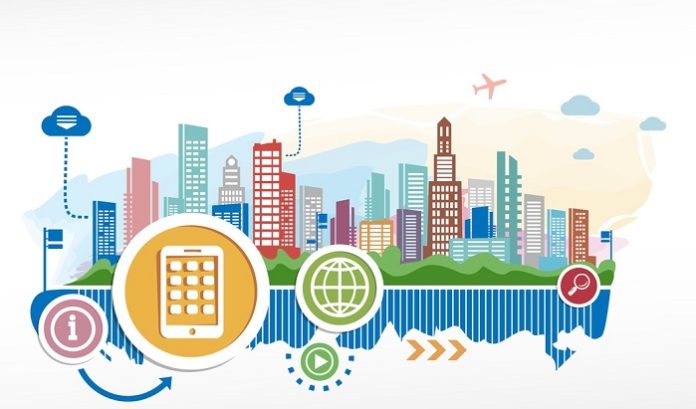Granicus connects governments with the people they serve by providing the first and only civic engagement platform for the public sector. Over 5,500 federal, state, and local government agencies and more than 300 million citizen subscribers power an unmatched Subscriber Network that turns government missions into quantifiable results.
With comprehensive cloud-based solutions for communications, government website design, meeting and agenda management software, records management, and digital services, Granicus empower stronger relationships between government and residents across the U.S., U.K., Australia, New Zealand, and Canada. By simplifying interactions with residents, while disseminating critical information, Granicus brings governments closer to the people they serve—driving meaningful change for communities around the globe.
With Ranga Shetty steering Granicus India as the General Manager, the company is committed to building technology and solutions for the government and its citizens to drive meaningful change for communities around the world. Here are the exclusive excerpts:

ELE Times: Please tell our readers about Granicus as a whole and about its vision as well.
Granicus has its headquarters in Denver and is the first and only government technology company that uses an innovative cloud technology platform that helps governments connect with the citizens they serve. Our platform delivers an intuitive digital experience driven by a cloud-first, data-driven, highly secure platform and comprises interactions, feedback, records management, and transparency. Granicus has helped more than 5,000 government organizations and converted their missions into quantifiable realities by providing the industry’s top cloud-based solutions for functions like communications, web content, meeting management, and digital services. Originally founded in 1999, Granicus’ goal is to empower the public sector through infrastructure, scalability, and security.
Granicus’ vision for India is to scale its India innovation centre as its largest technological campus to drive core product developments and build world-class products and solutions for governments across the world.
ELE Times: Please shed some light on the role of Infrastructure for technological advancements?
Digital access to information and services has now become deeply ingrained into the everyday lives of citizens. The scale and reach of digital infrastructure are key to the widespread social impact of technological advancements. The public sector can transform itself by offering digital access to information and delivering services digitally if the adequate infrastructure is available to enable ubiquitous access to all its citizens urban and rural. With a well-designed infrastructure in the public sector, the social impact of digital transformations can be far-reaching digital transformations supported by technology infrastructure in the public sector can also dramatically revitalize administrative processes, improve decision‐making, and drive efficiencies in the delivery of citizen services
ELE Times: Keeping the public sector in view, what are the main challenges in adopting a digital transformation in the public sector? In what ways would you suggest overcoming those challenges?
Today, governments are embracing the potential of digital transformation to provide better services that are cost-effective. Digital technologies are, by design, disruptive. They alter the way organizations provide services and the way people consume them.
This brings forth two challenges:
- Public sector organizations need to welcome this change and advance their digital footprint purposefully,
- Omnichannel processes need technological support, thereby enabling even non-digital people to benefit from digitization.
To overcome this, it is essential to understand the readiness of the stakeholders to embrace this digital transformation. Such diagnosis can reveal the existing internal constraints that may become an obstacle to achieving the desired result of digital transformation.
ELE Times: How is productivity improved in the public sector with technology?
Technology has played an appreciable role in making government or any service more accessible, convenient, approachable, and efficient. In the Public sector, it continues to impact outcomes immensely in many ways like:
Making approvals and submissions more efficient– Technology has speeded up the process of decision-making since more resources are available at the click of a button. It also increases the efficiency of work with timely approvals and submissions thereby reducing the manual effort to get a task done. Additionally, a highly secure platform reduces the dependency on technological expertise. Automation also plays a key role in tackling redundant tasks and reducing manual interventions that may lead to any delays.
Streamlining Operations– Technology allows users to collaborate effectively, across great distances allowing them to work from almost anywhere. Automation of mundane business tasks helps workers to focus on duties that higher attention or supervision.
The Power of a Platform – Granicus is not merely a portfolio of products, it is rather a deeply integrated platform where cross-family implementation delivers incremental value, fulfilling the promise as a trusted single vendor-of-choice and allowing complete adoption at the customer’s pace. It also covers every step of the customer’s digital journey and provides a full set of APIs that ensures interoperability with existing systems – and future-proof the platform.
Interactive two-way channel– An interactive two-way communication channel ensures that the user is always connected to the service irrespective of the time or place.
ELE Times: What kind of talent is Granicus looking at hiring for the India center?
The India center will be a powerhouse of product development and innovation which will create a competitive engineering workplace attracting and retaining world-class talent. Granicus is rooted in its strong culture that treats code as a craft and respects every employee for their field of expertise and the passion that they bring to work. Our engineers are experts at building massively scalable, highly secure systems that are purpose-built for government and civic engagement. We also are experts at using the massive amounts of data flowing through our systems to derive highly impactful insights using analytics, data science, AI, and ML.
Mayank Vashisht | Sub Editor | ELE Times









